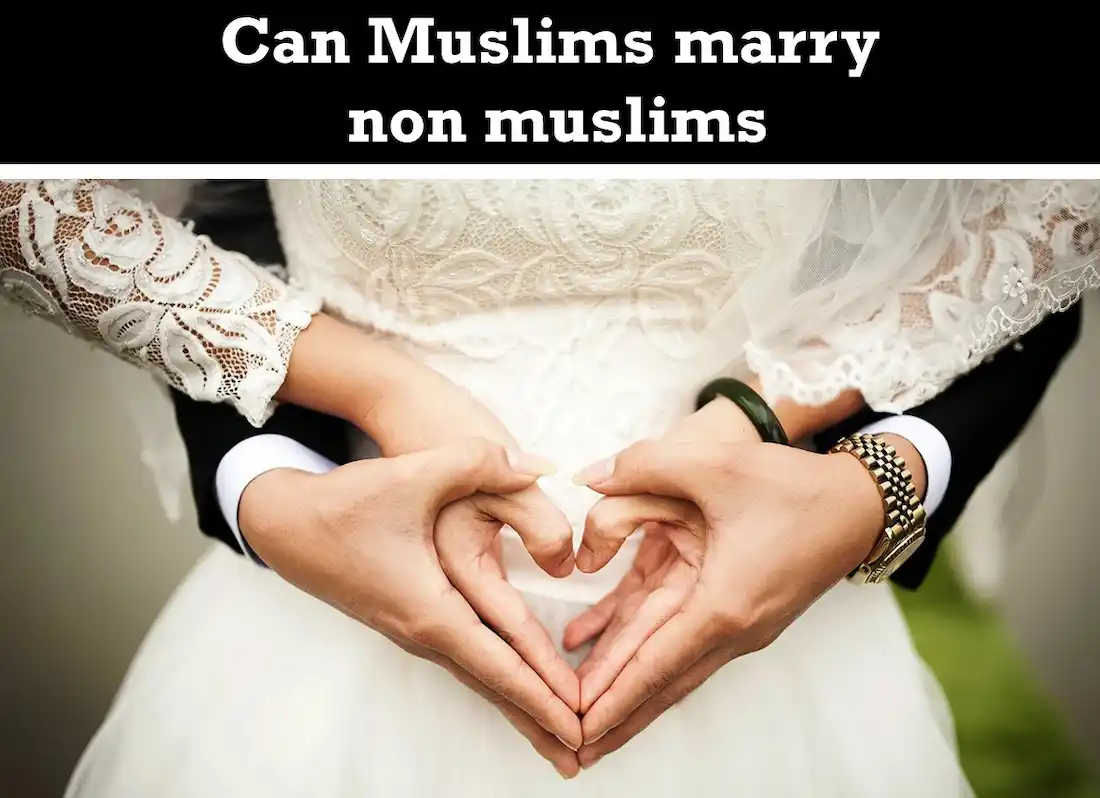So you’re thinking about dating a Muslim man as a non-Muslim? Good for you! Relationships are all about growth, understanding, and learning from each other. But let’s be real here, diving into an interfaith relationship can come with its own set of challenges. It’s not just about love—it’s also about respect, communication, and boundaries. In this guide, we’ll break down everything you need to know to make your journey smoother, more informed, and way less stressful.
Dating someone from a different cultural or religious background is a beautiful thing. It opens up doors to new experiences, traditions, and perspectives that you might never have encountered otherwise. However, it’s important to approach this with an open mind and a willingness to learn. This article will help you navigate the nuances of dating a Muslim man as a non-Muslim, so buckle up!
Before we dive deep into the nitty-gritty, let’s address the elephant in the room: religion plays a significant role in many people’s lives, especially in Islam. Understanding the core values and practices of your partner’s faith is key to building a strong foundation for your relationship. So, whether you’re already in a relationship or just curious about what it entails, this guide’s got you covered.
Read also:Gregg Allman And Shannon Williams A Love Story That Transcended Music And Time
Why Dating a Muslim Man Can Be Rewarding
First things first, dating a Muslim man can be an incredibly rewarding experience. Many Muslim men are raised with strong family values, a deep sense of responsibility, and a commitment to respecting their partners. These qualities can make for a solid, long-lasting relationship. Here are some reasons why dating a Muslim man might be worth considering:
- Strong Family Ties: Most Muslim men prioritize family and often come from tight-knit communities. This means you’ll likely be introduced to a supportive network of people who genuinely care about your well-being.
- Respect and Chivalry: In Islam, treating women with respect and kindness is emphasized. You might find that your partner goes above and beyond to ensure you feel valued and appreciated.
- Cultural Richness: From food to festivals, being part of a Muslim family can expose you to a rich tapestry of traditions and customs that add depth to your life.
Of course, every individual is different, but these are just a few perks you might experience when dating a Muslim man. Now, let’s move on to the practical stuff.
Understanding Islam: The Basics
If you’re new to Islam, it’s essential to familiarize yourself with the basics. Islam is one of the world’s major religions, with over 1.9 billion followers globally. At its core, Islam emphasizes faith in one God (Allah), compassion, and justice. Here are a few key concepts to get you started:
1. The Five Pillars of Islam: These are the fundamental practices in Islam, including the declaration of faith (Shahada), prayer (Salat), charity (Zakat), fasting during Ramadan (Sawm), and pilgrimage to Mecca (Hajj).
2. The Quran: The holy book of Islam, which Muslims believe contains the word of God revealed to the Prophet Muhammad.
3. Modesty: Modesty is highly valued in Islam, both in behavior and dress. This doesn’t mean you have to change your lifestyle, but understanding this value can help foster mutual respect.
Read also:Jojo Siwas Exboyfriend The Untold Story You Need To Know
By gaining a basic understanding of Islam, you’ll be better equipped to navigate the cultural and religious aspects of your relationship.
Common Challenges in Interfaith Relationships
Let’s be honest—interfaith relationships aren’t without their challenges. While love can conquer all, it’s crucial to acknowledge potential obstacles and work through them together. Here are some common challenges you might face when dating a Muslim man:
- Family Approval: In many Muslim cultures, family plays a central role in relationships. Your partner’s family might have strong opinions about your relationship, especially if they’re unfamiliar with your background.
- Religious Differences: Religion can influence everything from daily habits to life goals. It’s important to discuss how you’ll handle these differences and find common ground.
- Cultural Misunderstandings: Different cultural norms can lead to misunderstandings. For example, what’s considered polite in one culture might be seen as rude in another.
Don’t let these challenges scare you off! With open communication and a willingness to learn, you can overcome them and build a strong, lasting relationship.
Building a Strong Foundation
So, how do you lay the groundwork for a successful interfaith relationship? It all starts with communication, trust, and mutual respect. Here are a few tips to help you build a strong foundation:
1. Be Honest About Your Intentions
From the get-go, it’s important to be clear about your intentions. Are you looking for a casual relationship, or are you open to something more serious? Misaligned expectations can lead to unnecessary heartache, so have this conversation early on.
2. Respect Boundaries
Everyone has different comfort levels when it comes to relationships. Some Muslim men may prefer to avoid physical intimacy before marriage, while others may be more flexible. Respect your partner’s boundaries and communicate your own clearly.
3. Educate Yourself
Taking the initiative to learn about your partner’s culture and religion shows that you value their background. Ask questions, read books, and attend cultural events to deepen your understanding.
By building a strong foundation, you’ll be better prepared to tackle any challenges that come your way.
Dealing with Family Dynamics
Family dynamics can be tricky in any relationship, but they’re especially important in interfaith ones. Here’s how to navigate this aspect:
1. Introduce Yourself Gradually: Don’t rush to meet the entire family at once. Start with a few close relatives and take it from there.
2. Be Open to Learning: Show genuine interest in their traditions and customs. This will go a long way in earning their respect and trust.
3. Address Concerns Directly: If there are any concerns or misunderstandings, address them openly and respectfully. Avoid making assumptions or taking things personally.
Remember, family approval is important, but ultimately, the relationship is between you and your partner. Focus on building a strong bond with them first.
Practical Tips for Success
Now that we’ve covered the basics, here are some practical tips to help you succeed in your relationship:
- Communicate Regularly: Keep the lines of communication open. Check in with each other regularly to ensure you’re both on the same page.
- Be Patient: Building a relationship across different cultures and religions takes time. Be patient with yourself and your partner as you navigate this journey.
- Compromise When Necessary: No relationship is perfect, and compromise is key to making it work. Be willing to meet your partner halfway when it comes to differences.
These tips might seem simple, but they can make a world of difference in the long run.
Addressing Potential Misconceptions
There are a lot of misconceptions about Islam and Muslim men out there. Let’s clear some of them up:
1. Myth: Muslim Men Are Oppressive: This couldn’t be further from the truth. While there may be cultural variations, Islam teaches respect, kindness, and equality in relationships.
2. Myth: Muslim Women Are Always Covered: While many Muslim women choose to wear hijab, it’s a personal decision and not a requirement for all Muslims.
3. Myth: Non-Muslims Can’t Date Muslims: While some Muslim families may prefer their children to marry within the faith, it’s not a hard-and-fast rule. Many Muslim men are open to dating and marrying non-Muslims.
By addressing these misconceptions, you can approach your relationship with a clearer understanding of the reality.
Marriage and Beyond
If your relationship progresses to the point of marriage, there are a few things to consider:
1. Religious Conversion
In Islam, marriage between a Muslim man and a non-Muslim woman is generally not allowed unless the woman converts to Islam. However, this doesn’t mean you have to convert if you’re not ready. Discuss this topic openly with your partner and make a decision that works for both of you.
2. Children and Upbringing
Deciding how to raise children in an interfaith household can be challenging. Will they be raised in one faith, both, or none? These are important questions to address before tying the knot.
Marriage is a big step, so take the time to discuss these issues thoroughly and ensure you’re both on the same page.
Resources for Further Learning
Here are a few resources to help you deepen your understanding of Islam and interfaith relationships:
- Books: “Islam for Dummies” by Malcolm Clark and “The Heart of Islam” by Seyyed Hossein Nasr.
- Websites: Websites like OnIslam.net and Islamicity.org offer a wealth of information about Islam.
- Communities: Join local interfaith groups or online communities to connect with others in similar situations.
These resources can provide valuable insights and support as you navigate your relationship.
Conclusion
Dating a Muslim man as a non-Muslim can be a beautiful and enriching experience if approached with an open mind and heart. By understanding the basics of Islam, addressing potential challenges, and building a strong foundation, you can create a relationship that thrives despite differences.
So, what’s next? Take the first step by reaching out to your partner and starting a conversation. Ask questions, listen actively, and show genuine interest in their world. And most importantly, enjoy the journey!
We’d love to hear from you! Have you ever dated someone from a different cultural or religious background? Share your experiences in the comments below, and don’t forget to share this article with others who might find it helpful.
Table of Contents
- Why Dating a Muslim Man Can Be Rewarding
- Understanding Islam: The Basics
- Common Challenges in Interfaith Relationships
- Building a Strong Foundation
- Dealing with Family Dynamics
- Practical Tips for Success
- Addressing Potential Misconceptions
- Marriage and Beyond
- Resources for Further Learning
- Conclusion

